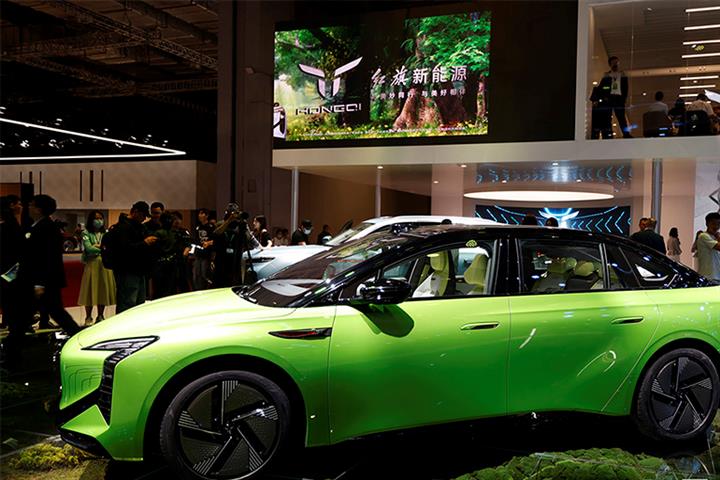 Latest NEVs Dominate Shanghai Auto Show
Latest NEVs Dominate Shanghai Auto Show(Yicai Global) April 19 -- New car-making forces in the electric car world have taken center stage at the 20th Shanghai International Automobile Industry Exhibition that kicked off yesterday.
Visitors swarm around the booths of new energy vehicle startups which are showcasing their second-generation electric cars that boast the latest smart driving and intelligent cockpit systems. Over 100 car models are making their global debut at the auto show, which is attracting over 1,000 exhibitors.
The level of intelligentization is becoming a key battleground for vehicle manufacturers. Nio has brought six EVs to this year’s show including three brand new ones. And established carmakers such as BYD, Geely, Chongqing Changan Automobile and Great Wall Motor are also displaying their newest electric cars.
"We have great expectations of the Shanghai Auto Show this year," Stephan Winkelmann, chief executive officer of Italian sports car maker Automobili Lamborghini, told Yicai Global. There are so many visitors, the size of the exhibition is huge and there is a lot of press coverage.
"Chinese NEVs have become the global bellwether, and Europe has fallen behind China in NEV development," he said.
Foreign carmakers, such as Mercedes-Benz, BMW and Audi, have a strong presence. And even the display areas of auto parts makers, normally deserted, are humming with people.
Japan’s Toyota Motor has brought two all-electric models cars that will go to market next year. Its sport utility vehicle bZ4X is already on sale in China, and the bZ3 will be launched at the show.
Toyota will accelerate the research and development of all-electric vehicles that target the Chinese market, said Koji Sato, the Aichi-based firm’s new president.
Consumer tastes are changing quickly, said Feng Xingya, general manager at Guangzhou Automobile Group. People who planned to buy fossil fuel-powered cars are now considering electric cars. Automakers should be highly tuned in to changes in consumer demand and need to make the transition to electric, smart and connected products at a quicker pace.
"Carmakers might need to sell three million vehicles a year in order to survive in future," said He Xiaopeng, chair of Xpeng Motors. "There will probably be less than eight manufacturers left by 2030. Only those who can realize high-efficiency R&D and cost equilibrium can stay ahead of the competition," he added.
Editors: Tang Shihua, Kim Taylor